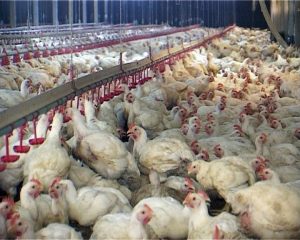 There are two apparently diametrically opposed sides in the animal husbandry industry. Animal Rights Activists and owners and operators of Intensive Animal Farming Facilities. One of the positive takes I have about being a Libertarian and Objectivist is that I’m not ideologically tied to any particular side in an issue.
There are two apparently diametrically opposed sides in the animal husbandry industry. Animal Rights Activists and owners and operators of Intensive Animal Farming Facilities. One of the positive takes I have about being a Libertarian and Objectivist is that I’m not ideologically tied to any particular side in an issue.
On one side are the activists who see the abuse of animals and feel an ethical obligation to do everything in their power to help the largely defenseless creatures. On the other are people trying to provide goods to paying customers, employ willing people, and make a profit while doing so. What we see are two groups of people doing all they can in court, on social media, and in various state legislatures to attack one another.
I, on the other hand, do not see the two groups as necessarily needing to fight one another for the minds of public opinion. I think there is a place for both sides and a happy middle ground. I understand getting the entire population of the world to turn to a plant-based diet is a hopeless endeavor. People will always want to eat meat and someone will provide this product. I am also truly disgusted when I see the videos animal rights activists’ post when they gain access to such farms.
If we take a Libertarian and Objectivist point of view, I think the inevitable conclusion is there will always be such farms but that animals should not be tortured and brutalized while they are living their short lives. When videos come out showing horrific abuse of animals the owners and operators of the facilities always express outrage but I find words to be largely meaningless. I want to see action.
That brings me to the point of this article. How can the owners and operators of Intensive Animal Farming Facilities and Animal Rights Activists work together in a pragmatic way to reach some reasonable solution? This is important. It must be remembered when the two sides attack one another this takes time, effort, and money. These things could be channeled into productive activities that make a difference.
The simplest solution is for Animal Rights Activists to purchase, install, monitor, and maintain cameras at various points in the facilities. If the owners of such farms truly are concerned for the welfare of their animals, as they express time and again, they will have no problem with such a system. It costs them nothing and ensures workers are being monitored for abuses to animals that certainly affect production.
It will also help the public make informed decisions about their purchases. If I can go online and watch how the animal is being treated at the farm before and during slaughter that helps me feel good about my purchase. If I know the animal is reasonably well-cared for and not being tortured, I am happy to spend my money on the product. I imagine that I’m not alone in this feeling. If I knew that an animal was horribly abused before getting to market, I would probably not make the purchase. This ripple effect causes those farmers who practice treating their animals with respect gain market share.
This changes the Intensive Animal Farming industry as a whole. If people are well-informed in their purchasing decisions and farmers who treat animals well are rewarded, then the farmers who have less healthy practices are driven from the business.
This is a desired result. It is good for the ethical farmers, it is good for the purchasing public, and contributes to the welfare of the animals themselves. I don’t think anyone would have an objection to this outcome except those who enjoy abusing animals. Let us not pretend that such people do not exist and are not attracted to jobs that allow them to carry out their perverse desires. They must be curtailed.
From my perspective, the important thing here is to try and work together to come up with solutions to problems rather than simply attacking one another. I find that ideological differences can be overcome when you are willing to examine practical solutions and work with each other. I also believe when you refuse to engage in such compromise you are setting yourself up for long-term disaster.
Neither the Intensive Animal Farming industry or the Animal Rights Activists can truly win this war alone. They need each other.
Tom Liberman